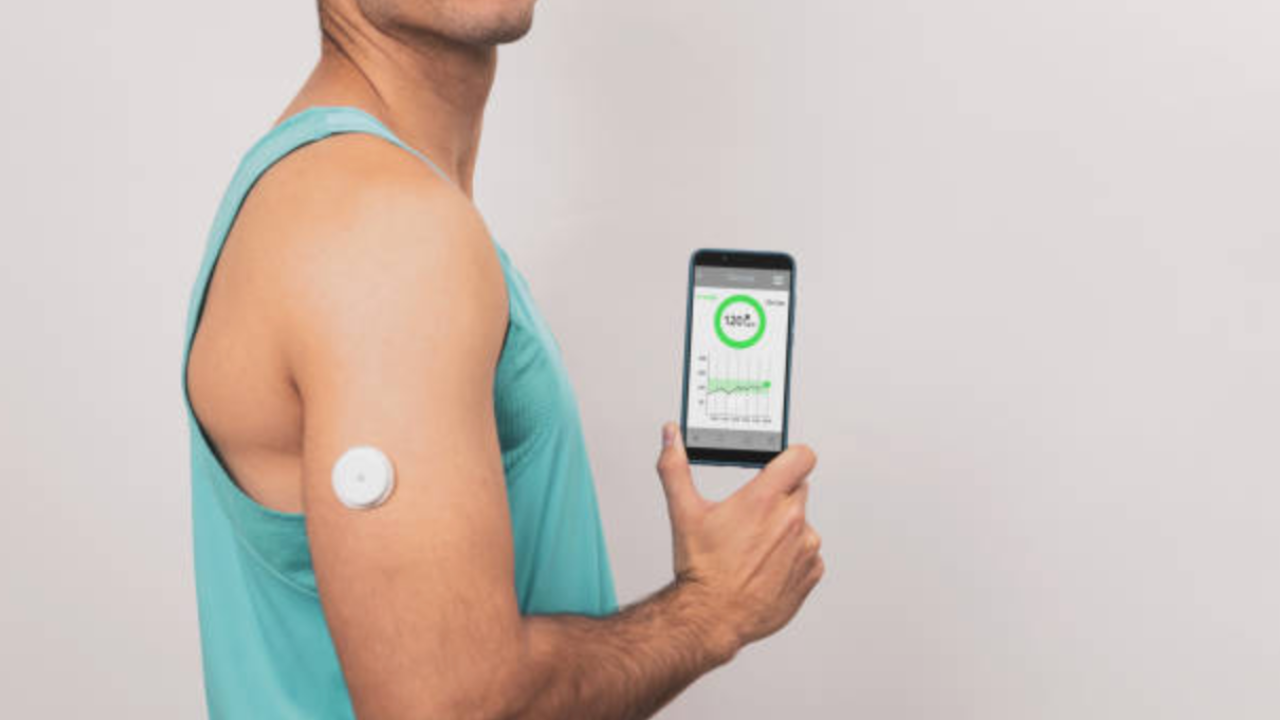T1D Dietitian Hikes While Managing Blood Sugar Levels

Hiking while managing diabetes can seem daunting, but with the right planning and preparation, it becomes much easier.
A registered dietitian and certified diabetes educator can help guide individuals with Type 1 or Type 2 diabetes to achieve balance during physical activities like hiking. Explore the steps the T1D dietitian took to hike while keeping blood sugars in check.
1. Start with a Balanced Breakfast
According to Ben, ensuring the right breakfast is the first step in preparing for a hike. A good combination of protein and carbohydrates is essential for quick energy while sustaining blood sugars throughout the hike. This balance helps keep the body fueled while preventing spikes or crashes in glucose levels during physical activity.
2. Monitor Insulin Levels
Before embarking on the hike, the diabetes educator ensures that insulin on board is kept on the lower side. This step is crucial in preventing hypoglycemia (low blood sugar) during the hike. Proper insulin management i...
Best Places for Insulin Pump Sites and Injections: Tips from a T1D Dietitian

Living with diabetes, whether it’s Type 1 (T1D) or Type 2 (T2D), means paying close attention to how and where you manage your insulin.
For people with Type 1 diabetes or Type 2 diabetes, using insulin pumps, continuous glucose monitors (CGMs), or injecting insulin is a part of daily life. However, one essential tip that many diabetes dietitians recommend is rotating your insulin sites. Here’s why it’s important and where you can place your devices for optimal results.
Why Rotate Your Insulin Pump Sites?
One of the key pieces of advice from a T1D dietitian or T2D dietitian is to avoid injecting or placing your insulin pump in the same spot repeatedly. Doing so can lead to the development of scar tissue, which can impact insulin absorption. Over time, scar tissue can make it harder for insulin to be absorbed properly, leading to fluctuating blood sugar levels and less effective treatment.
Rotating your insulin sites allows the tissue to heal, ensuring better absorption of insulin an...
Diabetes Meal Strategies: Advice from a T1D Dietitian

Managing blood sugar levels can feel overwhelming, especially for those navigating the world of diabetes.
Whether it’s Type 1 diabetes (T1D) or Type 2 diabetes (T2D), understanding how to balance meals can lead to more stable blood sugar readings. Here are three effective strategies to implement at mealtimes, recommended by a diabetes dietitian, to help keep blood sugars in check.
1. Count Carbs
Carbohydrate counting is essential for anyone managing diabetes. It involves assessing portion sizes and understanding how many carbs are on the plate. This skill serves as the foundation for maintaining healthy blood sugar levels. For those unsure how to count carbs effectively, reaching out to a diabetes dietitian can make a significant difference. A Type 1 or Type 2 diabetes dietitian can provide personalized guidance tailored to individual needs, making it easier to enjoy meals without the stress of unexpected blood sugar spikes.
2. Timing Your Insulin Dose
Insulin timing is crucial. ...
Diabetes Guide for a Smooth Road Trip

Planning a vacation is always exciting, but if you are living with diabetes, preparations require a little extra thought.
Whether it’s a family road trip or a beach getaway, understanding how to manage blood sugar levels while traveling is crucial.
Understanding the Impact of Travel on Blood Sugar
Travel often means long hours of sitting, which can increase insulin resistance. This means blood sugar levels can rise, even if the usual routine is disrupted. For individuals with Type 1 diabetes, staying on top of insulin doses is essential. A T1D dietitian can provide personalized advice for adjusting insulin rates during travel. Similarly, those managing Type 2 diabetes can benefit from insights offered by a dietitian.
Adjusting Basal Rates for Long Journeys
One effective strategy for maintaining stable blood sugar during travel is to consider increasing the basal insulin rate for the day of the trip. While this may sound intimidating, it’s a smart move. When sitting for extended p...
Ways to Manage Diabetes Like a Pro

Living with diabetes can sometimes feel overwhelming, but small changes can make a big difference.
Whether you have Type 1 diabetes (T1D) or Type 2 diabetes (T2D), working with a registered dietitian and certified diabetes educator can help you find the best strategies for your lifestyle. Here are four essential tips to improve your insulin sensitivity and help keep your blood sugar levels in check.
1. Move Your Body Regularly
Staying active is crucial for everyone, especially for those with diabetes. Exercise helps your body use insulin more effectively, making it easier to control blood sugar levels. When you move, your cells become better at taking up glucose, which can lead to more stable blood sugar readings. Whether walking, dancing, or playing sports, find an activity you enjoy and stick with it. A T1D dietitian or T2D dietitian can suggest tailored exercise plans to fit your needs.
2. Prioritize Quality Sleep
Did you know that sleep affects your blood sugar? When you don’t...
Optimizing Your Exercise with the Help of a Diabetes Educator

If you're living with diabetes, whether it's Type 1 (T1D) or Type 2 (T2D), you know that managing blood sugar levels is key to staying healthy.
One often overlooked area of diabetes management is how exercise affects blood sugar levels, and unfortunately, your diabetes care team may not always give you the best advice. As a result, your workouts may feel harder, and you may struggle with blood sugar fluctuations. Fortunately, as a diabetes dietitian, I’m here to help you navigate exercise and nutrition for better blood sugar control and improved fitness outcomes.
Why Your Care Team Might Not Have the Best Advice
Your Type 1 diabetes dietitian or T2D dietitian might suggest a one-size-fits-all approach to exercise, treating cardio and strength training the same. However, different types of physical activity affect your blood sugar in unique ways. For example, cardio exercise like jogging or hiking often lowers blood sugar, while intense activities like weightlifting or sprinting can ...
Carb Dosing for Croque Madame: Diabetes Educator’s Insight

Managing diabetes is not just about monitoring blood sugar levels; it's about making informed food choices and understanding how they affect glucose levels.
Whether managing Type 1 diabetes (T1D) or Type 2 diabetes (T2D), the expertise of a diabetes dietitian is essential in creating a balanced meal plan that supports overall health. By working with a T1D or T2D dietitian, individuals can better understand how different foods impact blood sugar, allowing them to enjoy meals without compromising their health.
New Food Adventure
Croque Madame, is a French sandwich made with bread, egg, cheese, ham, and mayo. While it may seem indulgent, for individuals with Type 1 diabetes (T1D) or Type 2 diabetes (T2D), it’s important to assess its carbohydrate content and how it will impact blood sugar levels. When traveling or trying new foods, working with a T1D dietitian or T2D dietitian can help individuals understand how unfamiliar meals might affect glucose levels. A diabetes dietitian ensures...
T1D Dietitian Hikes While Managing Blood Sugar Levels

Hiking while managing diabetes can seem daunting, but with the right planning and preparation, it becomes much easier.
A registered dietitian and certified diabetes educator can help guide individuals with Type 1 or Type 2 diabetes to achieve balance during physical activities like hiking. Explore the steps the T1D dietitian took to hike while keeping blood sugars in check.
1. Start with a Balanced Breakfast
According to Ben, ensuring the right breakfast is the first step in preparing for a hike. A good combination of protein and carbohydrates is essential for quick energy while sustaining blood sugars throughout the hike. This balance helps keep the body fueled while preventing spikes or crashes in glucose levels during physical activity.
2. Monitor Insulin Levels
Before embarking on the hike, the diabetes educator ensures that insulin on board is kept on the lower side. This step is crucial in preventing hypoglycemia (low blood sugar) during the hike. Proper insulin management i...
Enjoy Sweet Treats While Managing Blood Sugar: T1D Dietitian Guide

Living with diabetes, whether it’s type 1 or type 2, doesn’t mean giving up on favorite treats.
A certified diabetes educator and registered dietitian living with Type 1 diabetes (T1D) for over 25 years offers guidance on how to enjoy a milkshake without blood sugar levels spiking. Many individuals with diabetes are told to avoid desserts like cakes, cookies, and milkshakes, but it’s time to rethink that advice.
Myths Around Sweets and Diabetes
For years, individuals with diabetes have been warned to avoid sugary foods. Milkshakes, in particular, are often seen as a no-go because of their high sugar content. However, it’s important to break it down: while milkshakes are high in sugar and fat, causing an immediate spike in blood sugar, this doesn’t mean they must be entirely off-limits. A T1D dietitian emphasizes the importance of understanding how the body responds to such foods and making the right adjustments.
The issue with sugary foods is their potential to cause a sharp rise i...
Low-Carb Snacks and Blood Sugar: T1D Dietitian’s Advice

Managing Type 1 diabetes or Type 2 diabetes can be challenging, especially when it comes to choosing the right foods.
Many people with diabetes are drawn to low-carb or keto diets to help maintain stable blood sugar levels. However, not all “low-carb” snacks are created equal, and some can cause unexpected spikes in blood sugar. Here’s a story that illustrates this important point.
The Snack That Wasn't What It Seemed
A patient with Type 1 diabetes decided to try a new snack marketed as low-carb and keto-friendly. The snack seemed like the perfect choice, as it was labeled with fiber and low in carbs. At first, the individual’s blood sugar started at a reasonable level, but not long after eating the snack, the blood sugar suddenly spiked significantly, causing concern. This rapid increase in blood sugar was unexpected, especially given the snack's “low-carb” claims.
Why This Happens
This is a common issue for people with diabetes who rely on processed foods labeled as "low-carb." ...

